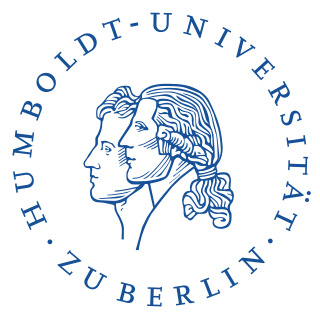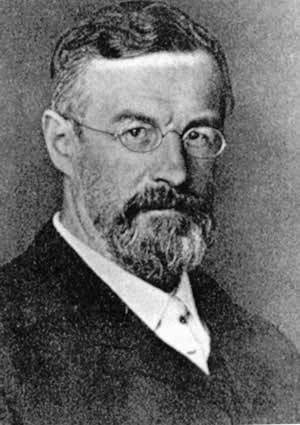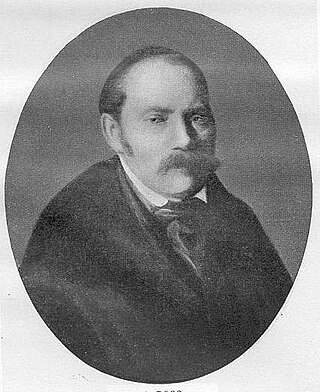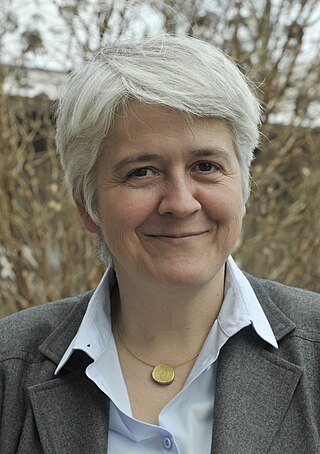
Aphaia was a Greek goddess who was worshipped almost exclusively at a single sanctuary on the island of Aegina in the Saronic Gulf.

The Humboldt University of Berlin is a public research university in the central borough of Mitte in Berlin, Germany.

The Free University of Berlin is a public research university in Berlin. It was founded in West Berlin in 1948 with American support during the early Cold War period as a Western continuation of the Friedrich Wilhelm University, or the University of Berlin, whose traditions and faculty members it retained. The Friedrich Wilhelm University, being in East Berlin, faced strong communist repression; the Free University's name referred to West Berlin's status as part of the Western Free World, contrasting with communist-controlled East Berlin.

Johann Michael Adolf Furtwängler was a German archaeologist, teacher, art historian and museum director. He was the father of the conductor Wilhelm Furtwängler and grandfather of the German archaeologist Andreas Furtwängler.
German studies is the field of humanities that researches, documents and disseminates German language and literature in both its historic and present forms. Academic departments of German studies often include classes on German culture, German history, and German politics in addition to the language and literature component. Common German names for the field are Germanistik, Deutsche Philologie, and Deutsche Sprachwissenschaft und Literaturwissenschaft. In English, the terms Germanistics or Germanics are sometimes used, but the subject is more often referred to as German studies, German language and literature, or German philology.

The Gottfried Wilhelm Leibniz Prize, or Leibniz Prize, is awarded by the German Research Foundation to "exceptional scientists and academics for their outstanding achievements in the field of research". Since 1986, up to ten prizes have been awarded annually to individuals or research groups working at a research institution in Germany or at a German research institution abroad. It is considered the most important research award in Germany.

The Berlin-Brandenburg capital region is one of the most prolific centers of higher education and research in the world. It is the largest concentration of universities and colleges in Germany. The city has four public research universities and 27 private, professional and technical colleges (Hochschulen), offering a wide range of disciplines. Access to the German university system is tuition free.

Hans Joas is a German sociologist and social theorist.
Ernst Eduard Samuel Fraenkel was a German linguist who made major contributions to the fields of Indo-European linguistics and Baltic studies.

The Temple of Aphaia or Afea is an Ancient Greek temple located within a sanctuary complex dedicated to the goddess Aphaia on the island of Aegina, which lies in the Saronic Gulf. Formerly known as the Temple of Jupiter Panhellenius, the Doric temple is now recognized as having been dedicated to the mother-goddess Aphaia. It was a favourite of Neoclassical and Romantic artists such as J. M. W. Turner. It stands on a c. 160 m peak on the eastern side of the island approximately 13 km east by road from the main port.

Ernst Christian Andreas Martin Fabricius was a German historian, archaeologist and classical scholar. Between 1882 and 1888 he participated in excavations in Greece and Asia Minor and also pioneered German research on the Roman Empire border defenses known as the Limes Germanicus.
Wolfram Hoepfner is a German classicist, archaeologist, architectural historian, and Professor of Ancient Architectural History, at the Free University of Berlin.

Ludwig Ross was a German classical archaeologist. He is chiefly remembered for the rediscovery and reconstruction of the Temple of Athena Nike in 1835–1836, and for his other excavation and conservation work on the Acropolis of Athens. He was also an important figure in the early years of archaeology in the independent Kingdom of Greece, serving as Ephor General of Antiquities between 1834 and 1836.

Otto Puchstein was a German classical archaeologist.
Ludger Alscher was a German classical archaeologist, who could be considered the most significant scholar of his subject area in the DDR.
Paul Heinrich August Wolters was a German classical archaeologist who specialized in ancient Greek and Roman art. He was the son of theologian Albrecht Wolters (1822–1878).

Jörg Baberowski is a German historian and Professor of Eastern European History at the Humboldt University of Berlin. He studies the history of the Soviet Union and Stalinist violence. Baberowski earlier served as Director of the Historical Institute and Dean of the Faculty of Philosophy I at the Humboldt University in Berlin.
Ernst Robert Fiechter was a Swiss architect and archaeologist. He is remembered for his research of ancient Greek temple and theatre architecture. He was a cousin to psychologist Carl Gustav Jung.
Herbert Guido Koch was a German classical archaeologist.

Friederike Fless is a German classical scholar and archaeologist. In 2003, she was appointed professor of classical archaeology at the Free University of Berlin. In March 2011, she became the first woman to be appointed president of the German Archaeological Institute where she is responsible for up to 300 digs and other projects per year. For her outstanding contribution to science and science management, in November 2014 she received an honorary doctorate from the Humboldt University of Berlin.












